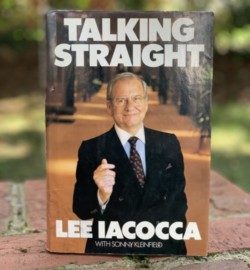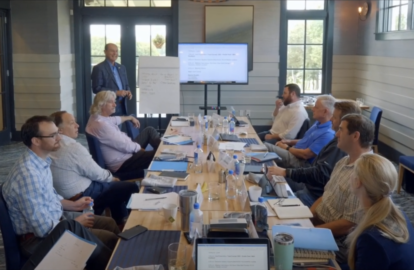It’s never too early to start thinking about your exit. In Everything I Ever Needed to Know I Learned in Vistage, longtime member Tim McCarthy advises leaders to choose a date and a “Magic Number” (the amount for which you’d sell your business that day).
For veteran CEO Bob*, the answers were “soon” and “a lot.” While Bob wanted to retire in a year, he didn’t know how to extract the most value from and elicit the best price for his company. He didn’t know how to make the Magic Number a reality. To find the answers, he turned to Vistage and to his peers.
An Occasional CEO
Some CEOs take time away from the office to play a round of golf now and then. Bob, on the other hand, took time away from golf to go into work once in a while. When he joined Vistage three years ago, he was clocking just a day or two in his company per week. At the same time, he wanted to boost its value so he could retire comfortably. Bob had his work cut out for him. While worth $25 million, the business was flat in a growing economy.
Each new member of our group hosts a session in which they make a presentation on their company. They talk about it all: revenues, profits, organizational chart, strengths, weaknesses, and goals. It’s a deep dive to teach the group about the new member.
It also enables the new member to discover the power of peers. In The Power of Peers, Leon Shapiro and Leo Bottary write, “By working with their peers in a manner that’s highly selective, strategic, and structured, CEOs can transform garden-variety peer influence into something much more powerful – something we call peer advantage.”
Igniting a Spark
Bob reaped the benefits of the peer advantage – though not exactly in the way that he anticipated. He wanted advice all retiring business leaders want: how to increase the value of his company.
What he received instead was infectious energy. The youngest CEO was 31, the oldest 67. They came from every walk of life, every culture, and every education background imaginable, but they were united in their passion, motivation, and desire to help each other succeed.
Bob’s peers also helped him realize this fundamental truth: if he kept up business as usual (which didn’t include much business on his part), he wouldn’t get the healthy return on his investment that he wanted. It was accept that – or do something to change it.
The energy of his peers rubbed off on Bob. He worked one or two days before. He now works five. He was disengaged before. He now rides with his salespeople at least once a week to remain connected. He was out of touch before. He now has weekly department head, staff, and leadership meetings so his finger is on the pulse. He was not informed before. He now reviews financials every month, without fail, so he knows what’s going on in his business.
Retire? Maybe Later
When he joined Vistage, Bob planned to retire in a year. Three years later, he cannot fathom it. He loves it too much. What’s more, his free time is more enjoyable because he’s earned it. The “peer advantage” changed everything. It even changed the hard numbers: with the energy and expertise he now applies to his work, Bob doubled revenue and profits in the last two years.
If he retired now, he’d make $4 to $5 million more than he’d have made before. He increased the value of his company – and in doing so, he became reengaged in it.
It’s never too early to think about your exit – or too late to renew your enthusiasm for your work. Through Vistage and the peer advantage, Bob has a new found purpose and direction. This may have not been the answer he had been searching for when he joined, but it turned out to be the one he needed.
*This name has been changed for confidentiality.


